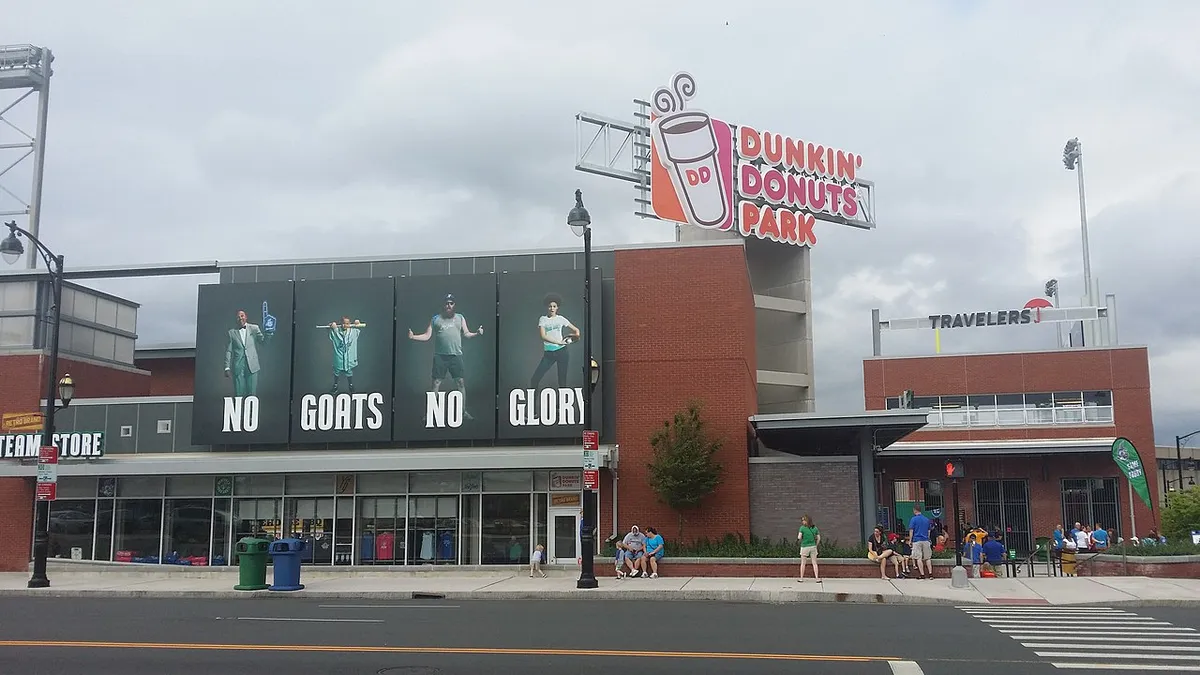Dive Brief:
- The City of Hartford, Connecticut, will pay $9.9 million to the original developer and builder of Dunkin’ Park, home of the Hartford Yard Goats, the Double-A affiliate of Major League Baseball’s Colorado Rockies, according to an Oct. 26 news release.
- Mayor Luke Bronin announced the settlement with design-builder Centerplan Construction and developer DoNo Hartford as a way to end seven years of litigation over the development. The city terminated the contractor in 2016 after delays to the project, leading the company to file a $90 million lawsuit for wrongful termination.
- In settling, the city ends the legal proceedings and avoids a second jury trial that would have begun this spring — a jury sided with the city in 2019, before the state’s Supreme Court ordered a new trial in 2022.
Dive Insight:
The city council will hold a meeting Monday to decide whether to approve the settlement, but Bronin said in a news conference Oct. 26 he was confident it will pass.
Middletown, Connecticut-based Centerplan could not be reached for comment.
The agreement stipulates that the city pay $9.9 million to Arch Insurance Co., which had paid $34 million in 2016 and 2017 to finish the ballpark. Arch will then make a payment of $1.8 million to Centerplan. The settlement will come from a surplus, so it won’t have an impact on the city’s fiscal year 2024 nor require the city to draw funds from its unassigned fund balance, the mayor’s announcement said.
“While I remain confident that the city would have prevailed again at another trial … the litigation would have cost many more millions of dollars in legal fees, would have left the city with ongoing risk, and could have prevented development from moving forward for many years," Bronin said.
The city estimates further litigation would have cost $5 million to $6 million and potentially prevented further development around the stadium.
The settlement agreement also means that the city can move forward immediately with development of the parcels around Dunkin' Park that had been frozen by litigation.
"The development around the ballpark will generate tax revenue for the city, reconnect neighborhoods that have long been kept apart by I-84 and the sea of surface parking lots, maintain our economic development momentum, and add hundreds of units of housing as part of the broader mixed-use development," said Bronin.














